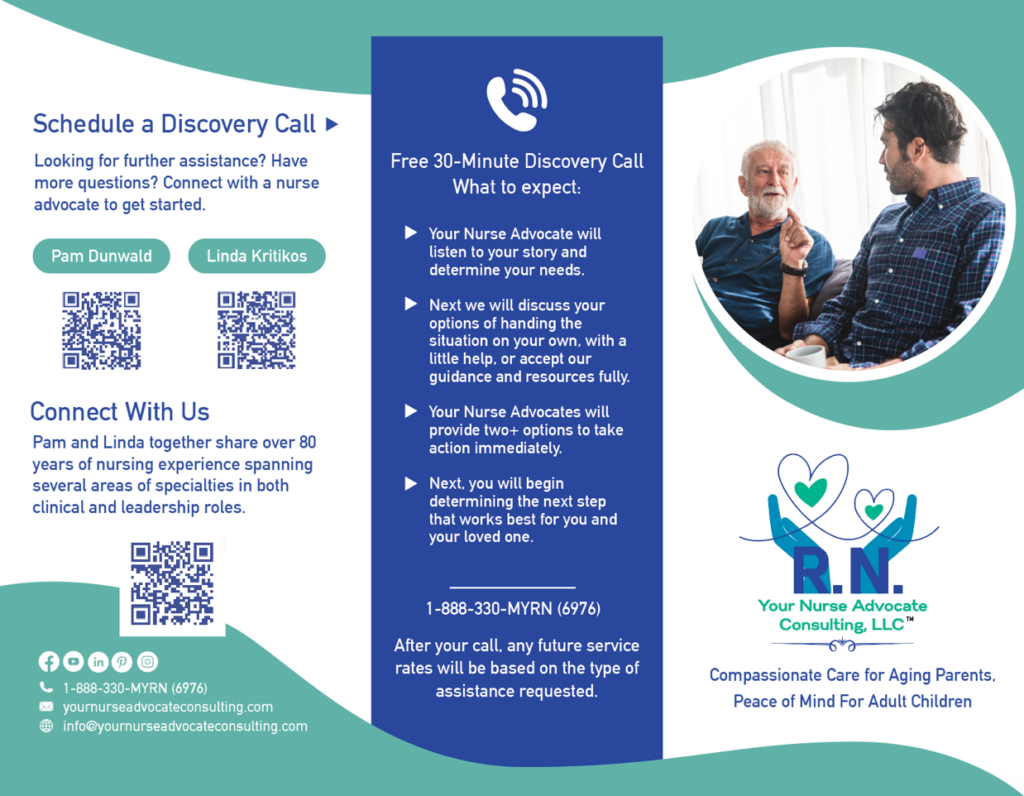The start of a new year brings a sense of renewal and a chance to set meaningful goals. What better resolution to make than getting your affairs in order? This thoughtful step isn’t just for your peace of mind; it’s a priceless gift to your family.
By organizing important documents, outlining your wishes, and preparing for the unexpected, you ease potential burdens and give your loved ones the clarity they’ll need during challenging times. It’s an act of love and foresight that shows how much you care. With the promise of fresh starts all around, there’s no better time to begin than now.
Why Getting Your Affairs in Order Matters.
Linda sat at her parents’ kitchen table; hands clasped around a lukewarm cup of coffee. Her heart sank as the conversations grew louder and more fractured, her five siblings struggling to agree on just one thing. Their parents, both in their 90s, struggled with some forgetfulness but had never agreed to do any advance planning for their future golden years. They insisted on managing things on their own and would not put any of their wishes in writing.
This is a great reason to start the conversation with your aging loved ones sooner vs. later. We will talk more about that in a minute.
Each child shared their “two cents” and they changed their minds depending on which child they last spoke with. Now, with their health suddenly declining, that very same family was being torn apart.
Three of the six siblings were in healthcare. One was an attorney, yet they could not come together to agree on anything. Some siblings wanted in-home care. Others believed a nursing facility was the best option. Others wanted to let them stay home. Hospice was not an option for some of the siblings. Bills were piling up, yet no one knew where to find key financial documents. Hurtful words were exchanged over who should take charge—and why someone else shouldn’t. The six siblings who once laughed together over Sunday dinners were now divided, their bond cracked due to the weight of overwhelming decisions that could have been avoided.
This story is ongoing and continues to not go well. Linda’s mom passed at home on hospice and her dad during the same week fell at home. He broke his hip and had to have surgery. He is in rehab now and the family is now in discussion on where he goes from here. He can’t go home but some of the family would like to see him go home. At the same time siblings state that he can’t stay with them.
Her dad was deemed incompetent to make his own healthcare decisions and Linda did get a healthcare power of attorney document signed before he was too confused to understand. Other siblings did not know this was done and are not happy with decisions being made by the nurse family member. Linda is now the power of attorney for healthcare.
Even as a seasoned nurse patient advocate, and her sister a social worker, Linda could not prevent the backlash of other siblings disagreeing with decisions. If the proper documents were in place by both parents, there would not be a discussion about what to do. The conversation would just be to agree to follow mom and dad’s wishes. The family could have salvaged some of the relationships that may never be the same.
Linda’s story is all too familiar.
Why Advance Care Planning Matters
No one likes to think about aging or the end of life. It’s uncomfortable, full of unknowns, and easy to sweep aside with, “We’ll plan later.” But waiting delays more than plans—it creates emotional, financial, and relational strain on the loved ones left to sift through the confusion.
Linda’s parents were loving and devoted to their family. They were prepared in so many ways—but not on paper. Without clear instructions for their care or financial assets, their adult children were left to not only figure it out on their own but also to carry the fear of making the “wrong” choice.
What one thought “Mom might’ve wanted” contradicted what another envisioned. And when decisions like dividing assets came into the picture, emotions ran even higher. This story could belong to any family.
But it doesn’t have to.

A Gift for Your Family
Advance care planning isn’t just about listing assets or making medical choices or who gets what. It’s a gift—a profound act of love. It lifts the weight from your family’s shoulders and makes sure everyone is on the same page. Your children won’t have to guess what you would have wanted. Instead, they’ll have one clear directive to follow.
When your plans are documented—including your medical preferences, financial arrangements, designated decision-makers, and even information about burial wishes—you remove stress during an already emotional time. This allows your family to focus on healing, not disputes.
Here are just a few peace-of-mind benefits of advance care planning:
- Prevents family conflicts by ensuring your wishes are clear to everyone.
- Eases decision-making burdens for your loved ones, especially in critical or unexpected situations.
- Organizes financial affairs so assets like your house and retirement funds are handled according to your desires.
- Provides emotional closure for family members as they honor your life exactly as you intended.
Salvaging Relationships
Parents naturally wish for their adult children to maintain strong and harmonious relationships, especially when it comes to managing affairs and legacy planning. It’s important to recognize that clear communication and thorough planning play a pivotal role in preventing misunderstandings that could lead to conflict.

How to Start the Process
The idea of “getting your affairs in order” might feel overwhelming. It is not your average dinner table discussion. Starting is simpler than you think. Follow these six key steps to begin your own advance care planning today:
- Start the Conversation
Talk openly with your family about your wishes. Acknowledge that while the subject may feel uncomfortable at first, having clarity is invaluable for everyone.
- Choose Your Representatives
Select a healthcare proxy and a durable power of attorney (POA). These individuals will make decisions on your behalf if you’re unable to do so yourself. Make sure you select these individuals based on their ability to carry out your wishes. Choose wisely.
- Document Your Wishes
Work with a professional to create legal documents outlining your healthcare preferences, financial directives, and designated decision-makers. The more detailed, the better. Two essential professionals are an estate planning attorney and your fiduciary financial planner. An optional third choice could be a social worker or a nurse patient advocate to help you sort through your wishes, explain your choices before seeing the professional that will complete your paperwork.
- Include Your Notes for Life
Beyond practical matters, consider writing personal touches like your obituary, how you want to be remembered, or messages of love for your family. These extra efforts offer comfort and a lasting sense of connection.
We were so grateful that my mother-in-law had all of her affairs in order complete with documents and many notes we called “Easter Eggs”. She left notes with EVERYTHING!
We found notes in items that were given to her with who they came from. She wrote her obituary. She wrote a letter that she knew we would read after her passing. She passed this past April, and we are still dealing with her estate, but it has been a smooth process thanks to her preparedness.
She even had family member names on the backs of items that somewhere down the line someone had asked if they could have it after she was gone. We then knew where several of her items were going, and no one would disagree with “Ma”. If a name was on it, it was theirs.
- Keep Everything Accessible
Ensure documents are stored in a safe but accessible location. Share a copy with your designated representatives and key loved ones. My mother-in-law had a fire-proof safe at home as well as a safety deposit box at the local bank. She wrote out a list of where everything was kept.
- Regularly Review and Update Plans
Life changes—so should your plans. Revisit them periodically and revise as necessary to ensure your preferences are always up-to-date.
Don’t wait until it’s too late or assume these conversations can “happen tomorrow.” After all, life is beautifully uncertain.
Typically, advance directives should be reviewed and updated every 10 years, if a spouse passes away, there is a divorce, a new diagnosis such as cancer, or a change in medical condition.

How We Can Help
At Your Nurse Advocate Consulting, we’ve worked with countless families who’ve faced these challenges head-on. Sadly, one common theme emerges: the fear among adult children of making the wrong decisions for their parents.
We’re here to make sure your family doesn’t have to go through the same heartbreak and conflict. Our team offers expert guidance, resources, and support to help you take ownership of your planning—transforming an overwhelming process into one of clarity and empowerment.
Oftentimes a “third party” that is not a family member can help facilitate these conversations if they are not going well. We can also help with this type of mediation with your aging loved ones and your family.
Lastly as R.N.s we can help you plan for the future based on current and anticipate future healthcare needs. We can explain all the senior living options and what they entail as well as average costs to help you prepare.
Want to take the first step? Join us on January 15th for our FREE Masterclass titled “Getting Your Affairs in Order”.
Workshop Details
- What: Learn how to organize your plans with 90 minutes of instruction, Q&A, and exclusive guides designed to help you overcome procrastination. We’ll cover everything—medical, financial, and personal directives—to give you peace of mind.
- Why: Because your family deserves clear guidance and your legacy deserves respect.
- When: January 15th
- Where: Online (link provided upon registration)
- Who: Led by experienced elder care experts, with real-life advice from caregivers and families who’ve been in your shoes.
REGISTER NOW to secure your spot and get started.
Your Future, Their Peace of Mind
Linda often reflects on how different things might’ve been if her parents had planned ahead. The deep divisions in her family still exist, and she doesn’t expect them to end anytime soon—shadows of disagreements that could have been avoided with a conversation and a few key documents.
The time to plan isn’t when you need it—it’s long before. Advance care planning isn’t simply “getting your affairs in order.” It’s about leaving behind love, clarity, and peace for your family. It’s making sure your wishes are not only known but followed.
Take that first step today. Not for yourself—but for the people who matter most.
Thanks again for taking time out of your busy day to spend a few minute with us.
Take care and see you back her soon,
Pam and Linda
Your Nurse Advocates
“Compassionate care for aging parents and peace of mind for the adult Children”
Resources:
Your Nurse Advocate Free Resource
Your Nurse Advocate Consulting YouTube Channel
https://juwyexd7.pages.infusionsoft.net/Your Nurse Advocate Weekly Newsletter
https://www.nia.nih.gov/health/advance-care-planning/five-myths-about-advance-care-planning




